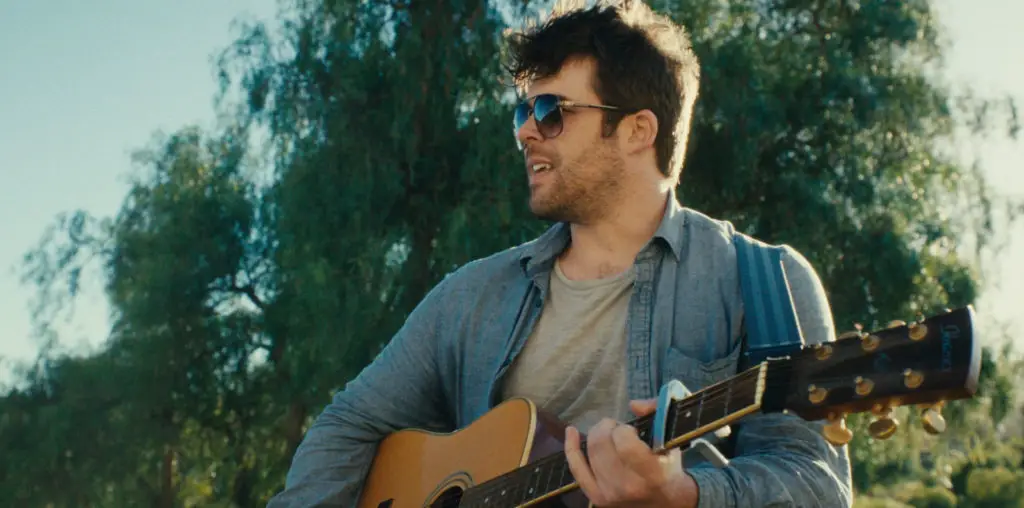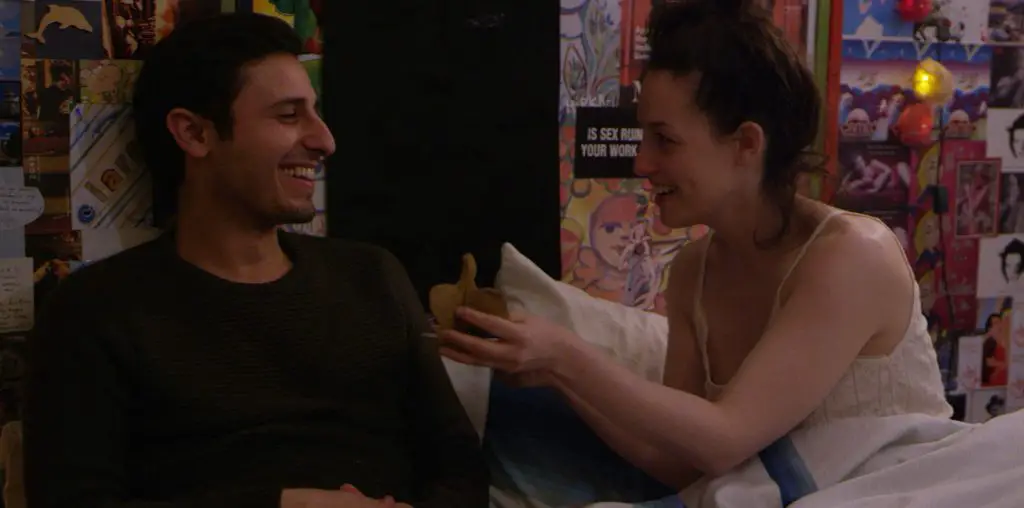
Marty (Joshua Burge) is an apathetic temp at a bank, enjoying the anonymity that comes from being almost entirely forgettable. Via small scams that bring in some pocket cash, like ordering office equipment through work and then “returning” it in person for a refund, Marty seems obsessed with making money without working for it. And when he falls upon an opportunity to sign over a handful of company checks to himself, he not surprisingly goes for it.
Unfortunately for Marty, he didn’t think things through well enough, forgetting that most banks keep scans of deposited checks for reference, and almost everything is recorded. Fearing capture for his deed, Marty falls down a hole of increasing paranoia and desperation, where each choice becomes steadily worse than the one before it, and all the con games he’s been playing begin to fail.
Joel Potrykus’ feature film, Buzzard, is trainwreck-gazing at a downward spiral. Marty isn’t always a sympathetic character, and all the problems he faces are certainly of his own creation, but you still feel for this human who is stuck in a state of arrested development. While his scams may seem clever, he’s often surprised when they work, pushing his luck further in much the same way a young child, testing boundaries, would. The problem for Marty is, though he keeps approaching bottom, he never seems to hit it, and thus things only get worse.
The film’s sense of humor comes in the form of Marty’s co-worker Derek (writer/director Joel Potrykus, who gave himself the most fun role in the film). A slightly more outgoing version of Napoleon Dynamite‘s stunted manchild Kip, though entirely fixated on, and fearful of, being accidentally put in homoerotic situations, Derek and Marty’s interactions together are not unlike middle school students (or younger). They hang out, they play video games, they make fun of each other and they hide from authority. It’s not entirely clear whether Marty actually likes Derek, but then again, outside of death metal, frozen pizza, money and his cinema-inspired DIY project (which I won’t spoil here), it’s not clear whether Marty likes anything.
On the technical side of things, Buzzard looks great and moments of music are perfectly utilized. It’s also paced well, succeeding in the balancing act of keeping the narrative moving forward even when it seems like Marty’s life isn’t going anywhere. The film also predominantly carries a laid-back tone that tends to set up a strong contrast for the few more dramatic beats to come; not in a jarring way, but one that shows how far out of his comfort zone Marty truly has gone.
Overall, while I think Buzzard is likely not going to be for everyone (Marty can be pretty unlikable), it’s still a sold narrative. And again, if you look at Marty as someone looking for a wall to bounce off of, like a young child navigating unknown boundaries, it allows for greater empathy. He’s not an evil sort, he’s just untamed. Whether that will end well for him or those around him is up for debate.

